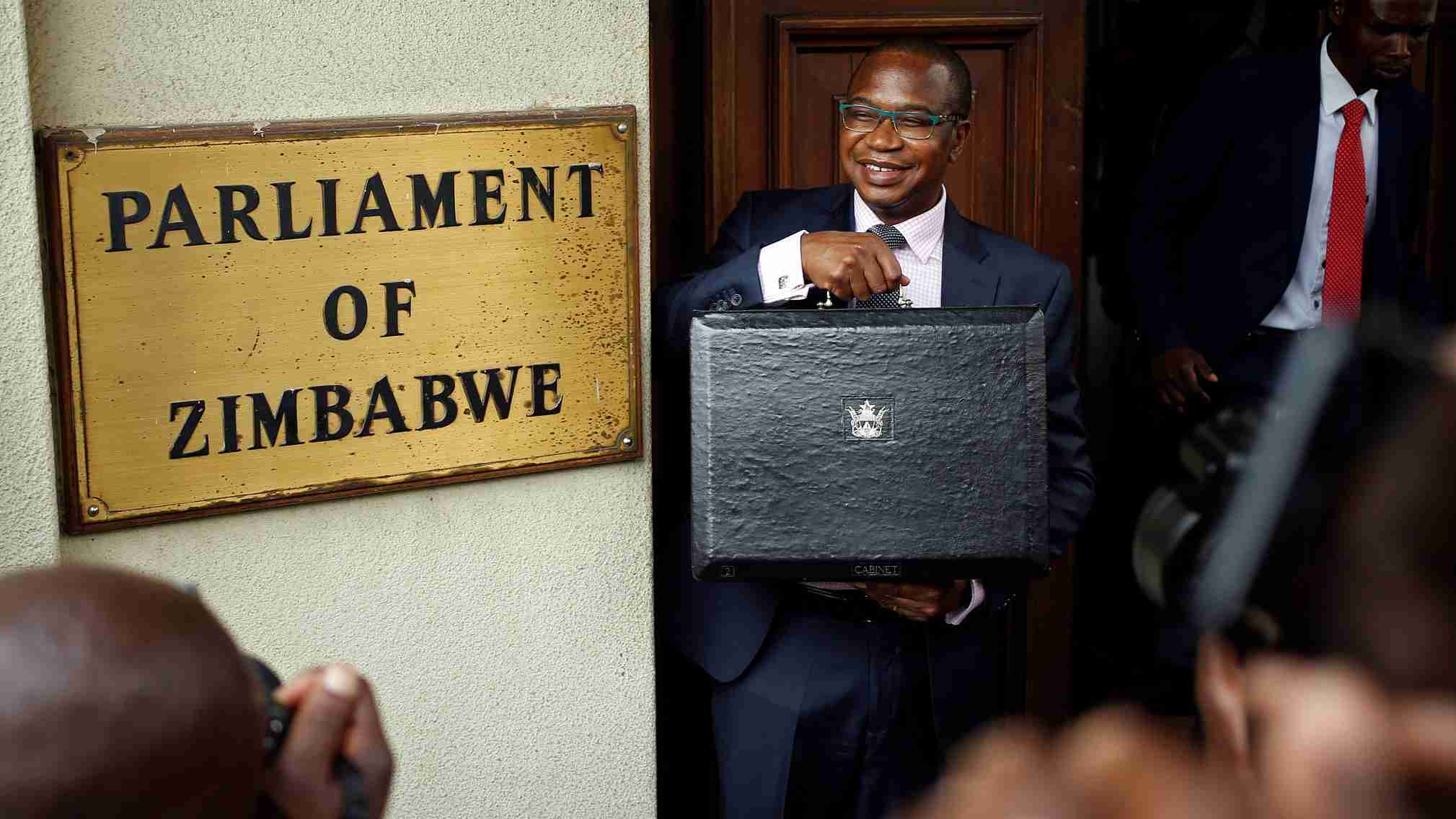
Business
13:03, 23-Nov-2018
Zimbabwe's 'austerity' budget to cut government expenditure
Updated
12:24, 26-Nov-2018
CGTN

Zimbabwe will remove “ghost workers” from the civil service and cut government salaries, Finance Minister Mthuli Ncube said Thursday when presenting his 2019 "austerity for prosperity" budget, a year after Emmerson Mnangagwa was named president on the promise of making the country “open for business.”
Ncube said the economy will grow by 3.1 percent in 2019, down from initial projections of nine percent due to macro fiscal vulnerabilities and a drought that is expected in the 2018/19 agricultural season.
However, fiscal consolidation measures beginning 2019 are expected to give a strong rebound to economic growth, pushing it above seven percent from 2020, said Ncube.
Zimbabwe, he said, was expecting to receive 606.7 million U.S. dollars from development partners in 2019.
The main focus of the budget, which Ncube described as "austerity for prosperity," is to stabilize the economy and focus on quick wins to stimulate growth and job creation.
Ncube said the aim was for the country to remain on track for its long-term goal of becoming a middle-income economy by 2030.
Robert Mugabe was ousted as president in 2017, after years of economic turbulence that saw hyperinflation and the collapse of Zimbabwe's currency.
The main currency in use is currently the U.S. dollar, but efforts to introduce electronic dollars alongside physical notes have caused confusion in the past 12 months, leading to price hikes, business closures and fuel shortages.
Ncube said the government will tighten expenditure to curb the budget deficit, which has become a major source of economic vulnerability alongside the country's current account deficit, rising inflation and foreign currency shortages.
The budget deficit will close the year at over 11 percent of GDP (2.8 billion U.S. dollars), much higher than the original 800 million U.S. dollar target.
The budget deficit will gradually fall to five percent in 2019, four percent in 2020 and three percent in 2021, according to Ncube.
To reduce expenditure, from January the government will look to weed out all “ghost workers” in the civil service by introducing biometric registration for all civil servants, impose a five percent salary cut on basic salaries of senior government employees and reduce the country's foreign missions, among other cost-cutting measures.
The civil service wage bill currently eats up 90 percent of state revenue, according to the International Monetary Fund.
"The 2019 budget places emphasis on living within our means by instilling fiscal discipline and rationalizing expenditures in order to create additional financial capacity for funding developmental expenditures and enhancing delivery of public services," Ncube said.
The minister also said the government had set aside 53 million U.S. dollars in the 2019 budget to compensate former white commercial farmers whose land was repossessed by the government during the land reform program.
(With inputs from Xinhua)

SITEMAP
Copyright © 2018 CGTN. Beijing ICP prepared NO.16065310-3
Copyright © 2018 CGTN. Beijing ICP prepared NO.16065310-3